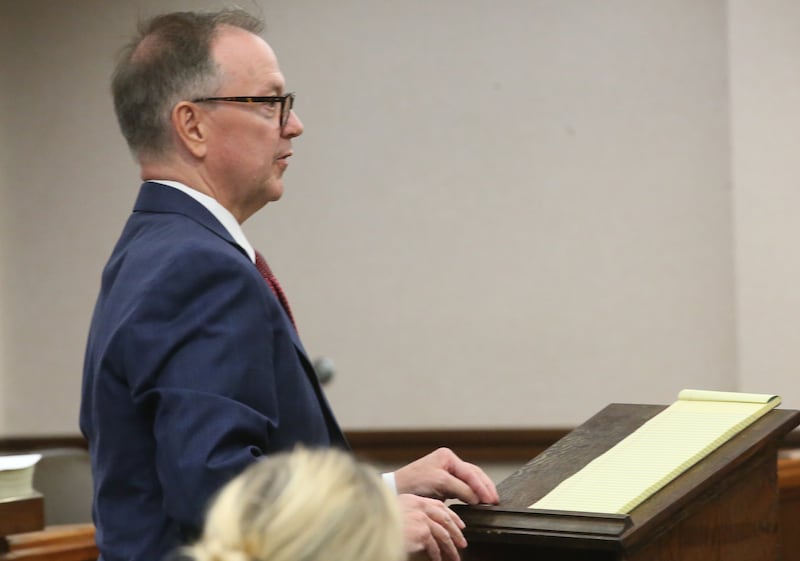Chester Weger‘s attorneys continued to mount his defense on Tuesday during the second day of his “mini-trial”, a term coined by his attorneys to describe his post-conviction evidentiary hearing.
Weger, 86, is trying to overturn his conviction for killing Lillian Oetting, one of three women fatally bludgeoned in 1960 at Starved Rock State Park. Weger confessed to the killings and later recanted. He has maintained his innocence and spent the past six decades fighting for new proceedings.
Weger, who moved to Missouri earlier this year, did not appear in court. His attorney, Andy Hale, said Weger was feeling ill and would not appear in court this week.
The prosecution Tuesday said every witness on the docket was testifying on hearsay, double hearsay or triple hearsay. La Salle County Judge Michael C. Jansz overruled based on previous rulings allowing hearsay.
The first witness called was Marsha Minott, of Aurora, who testified that her mother, Lois E. Zelensek, a telephone operator for Illinois Bell Telephone, overheard a conversation between two men regarding bloody overalls in a trunk of a car.
Minott said her mother never told her about the conversation she overheard; instead, her father told her and her siblings on his deathbed.
“We thought it was the morphine talking,” Minott said.
Minott said she didn’t know anything about the Starved Rock Murders until Hale contacted her, and she read her mother’s interview with the Illinois State Police. She said her parents kept the information from her and her siblings because they were afraid for their children’s lives.
During cross-examination, Special Prosecutor Colleen Griffin asked if Minott’s mother ever conveyed that she was afraid for their lives. Minott said no.
Randall Reynolds, of Cherry, testified he attended a retirement party for La Salle County Sheriff’s deputy William “Bill” Dummett.
Reynolds testified he heard Dummett tell a group of people he knew Weger was innocent and got him to confess anyway.
“I was really kind of devastated,” he said in response to Hale, who asked him how hearing the statement made him feel.
During cross-examination, Griffin asked if anyone had gone to the authorities with that statement. Reynolds said no.
“You were devastated by that,” Griffin said.
“Yes, I was,” Reynolds said.
“But, not devastated enough to go to the authorities,” she said.
James Mitchell Woods, of Princeton, testified that La Salle County Sheriff’s Deputy Wayne Hess confided in his father, James Francis Woods, telling him, “Jimmy, what we did to that kid wasn’t right.”
Woods said he was in the room when his father shared the information with his mother. Woods maintained he tried to question his father further numerous times but was “dismissed.”
Mark Shliafk, of the special prosecutor‘s office, said this case was a “big topic of conversation,” and Woods still didn’t come forward with his statement for 40 years.
Roy Tyson, of Hennepin, testified to having a lengthy conversation with Harold “Smokey” Wrona in 1996 in which Wrona said he was contacted by a nameless man looking for a place to dispose of three bodies. Wrona told Tyson that he was offered $1,000 to find a place.
According to Tyson’s testimony, Wrona told him he became involved in planning the murders after showing “the guy” St. Louis Canyon at Starved Rock State Park and offered Wrona an additional $30,000 to plan the murders.
Chris Koch, of the special prosecutor’s office, challenged Tyson’s detailed testimony, asking if he had listened to Hale’s Podcast, watched the HBO documentary, or read Steve Stout’s book, “The Starved Rock Murders” — Tyson had.
Weger’s mini-trial will continue at 10 a.m. Wednesday.
